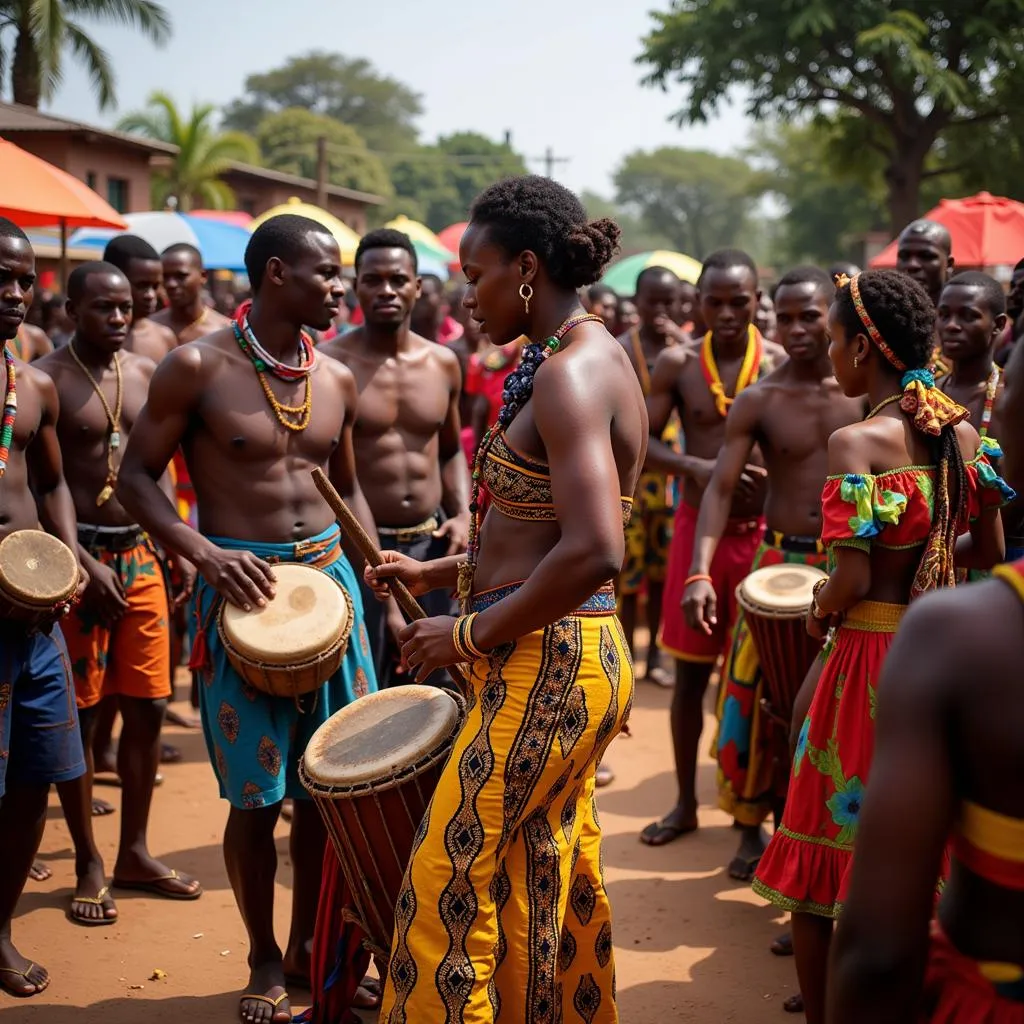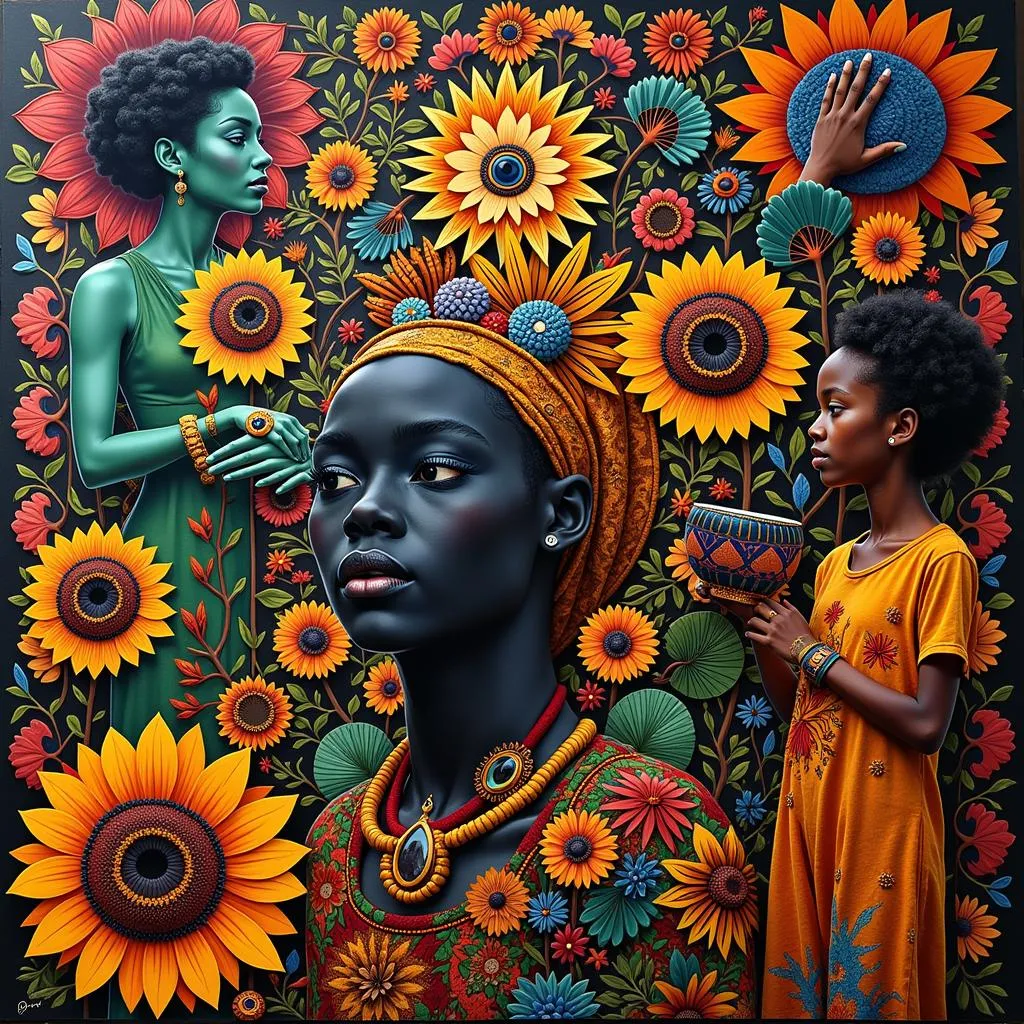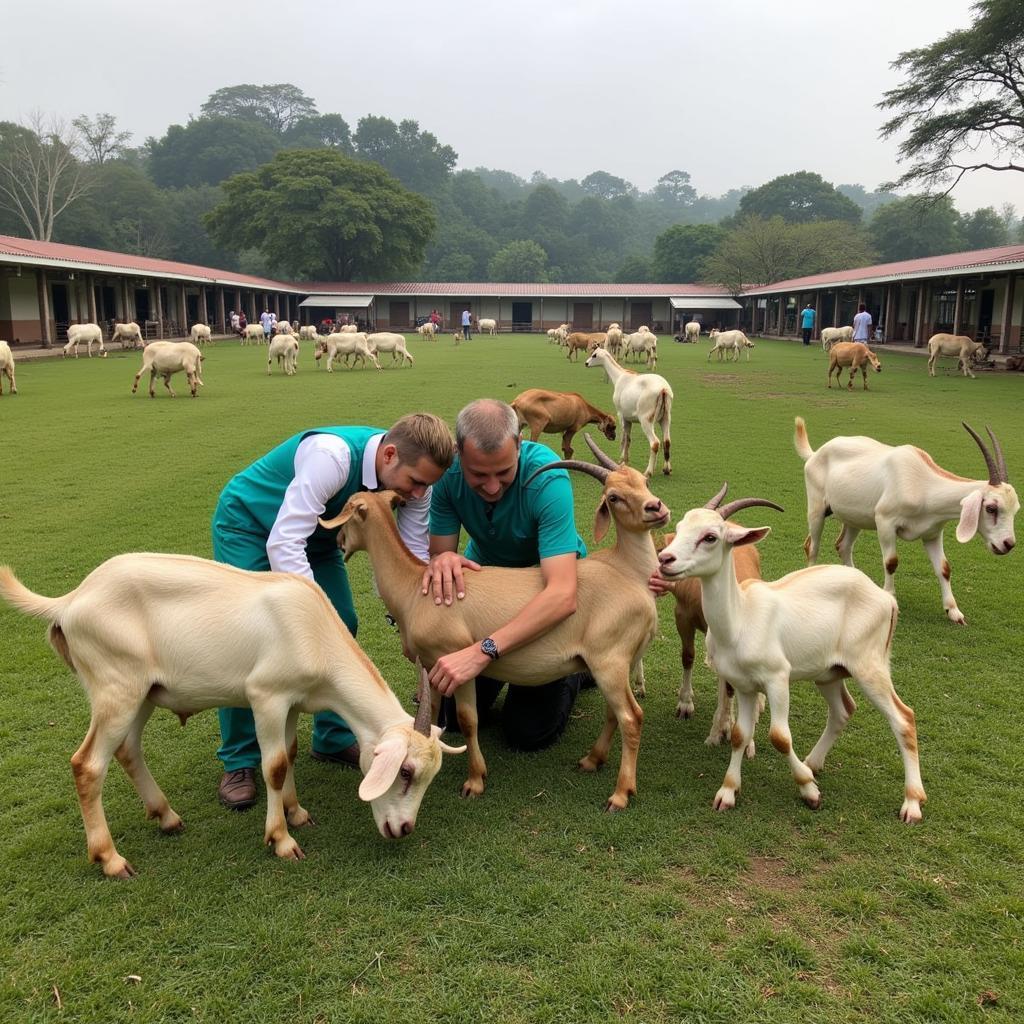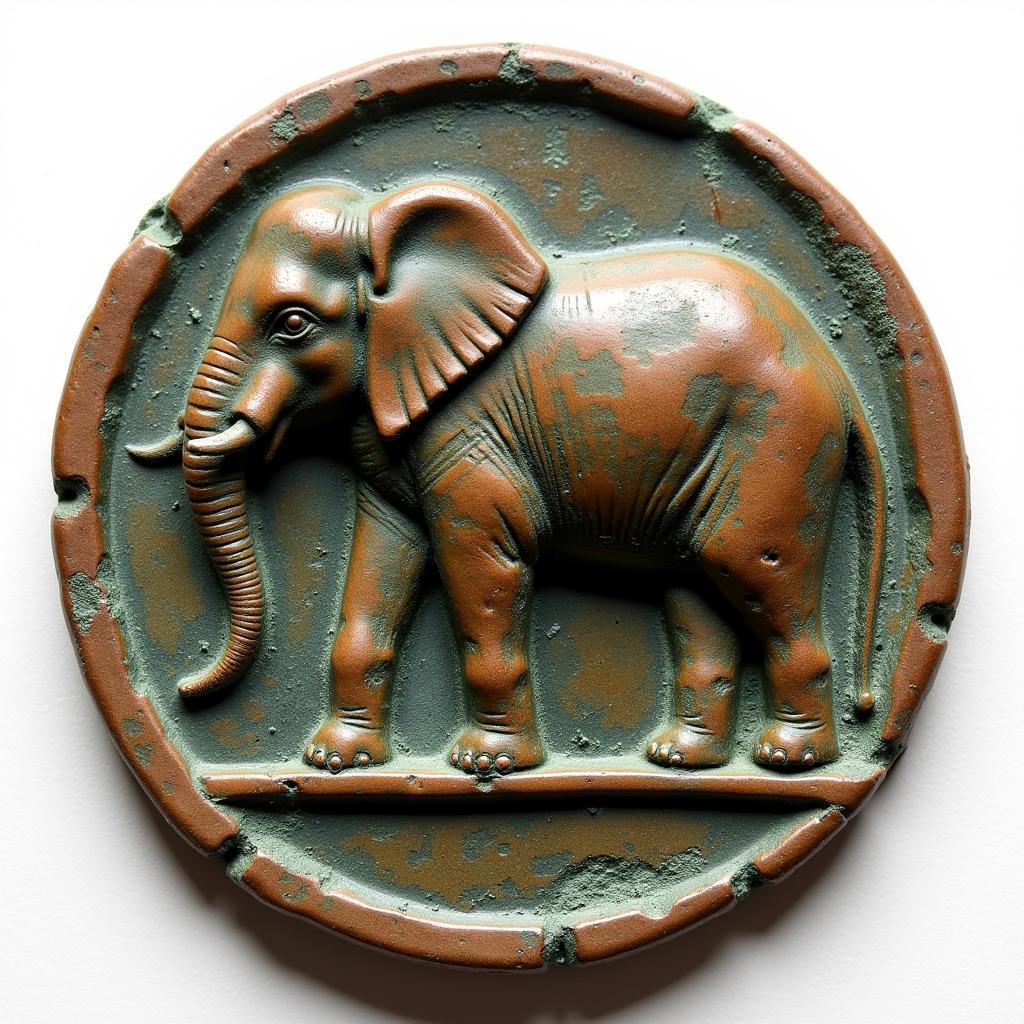The Enduring Spirit: African Diaspora Religion
The African diaspora, the dispersion of Africans across the globe due to historical events like the transatlantic slave trade, profoundly impacted the religious landscape of many nations. African Diaspora Religion refers to the diverse array of religious beliefs and practices retained, adapted, and innovated by African descendants in their new environments. This article delves into the fascinating world of African diaspora religion, exploring its origins, characteristics, and enduring influence.
Roots of Resilience: Origins and Development
The transatlantic slave trade forcibly displaced millions of Africans, stripping them of their homelands and cultures. Despite facing unimaginable hardships, enslaved Africans clung to their ancestral spiritual beliefs, adapting them to new contexts and incorporating elements of other faiths encountered in the Americas. This fusion gave rise to unique religious expressions that became central to the identity and survival of African diaspora communities.
Beyond Syncretism: A Tapestry of Beliefs
African diaspora religions are often described as syncretic, meaning they blend elements of different religions. While this holds true, it’s essential to recognize that these faiths are not merely a hodgepodge of borrowed beliefs. They represent a dynamic process of cultural retention, adaptation, and innovation, where African spiritual concepts form the bedrock upon which new meanings and practices are built.
 African Religious Ceremony
African Religious Ceremony
Common Threads: Shared Characteristics
Despite their diversity, African diaspora religions share some common threads:
- Ancestor Veneration: Respect for ancestors is paramount, with rituals and offerings dedicated to seeking their guidance and blessings.
- Spirit Possession: Belief in spirits who can interact with the living and influence their lives is widespread. Rituals involving music, dance, and altered states of consciousness facilitate communication with the spirit world.
- Oral Tradition: Religious knowledge is often transmitted orally through stories, songs, proverbs, and rituals, emphasizing performance and embodied experience.
- Emphasis on Healing: Many traditions incorporate healing practices that address both physical and spiritual ailments, often utilizing herbs, rituals, and divination.
A Global Tapestry: Diverse Expressions
The African diaspora has birthed a multitude of distinct religious traditions across the world. Some well-known examples include:
- Candomblé (Brazil): Originating in Brazil, Candomblé blends Yoruba traditions with Catholicism, honoring a pantheon of orixás (deities) who embody forces of nature.
- Vodou (Haiti): Vodou emerged in Haiti, drawing on West African spiritual practices and incorporating elements of Catholicism. It revolves around the worship of lwa (spirits) who serve as intermediaries between humans and the divine.
- Santería (Cuba): Santería, practiced in Cuba and other Latin American countries, combines Yoruba beliefs with Catholicism, venerating orishas alongside Catholic saints.
The Enduring Legacy of African Diaspora Religion
African diaspora religions have had a profound impact on the societies where they are practiced. They have:
- Preserved Cultural Heritage: These religions have been instrumental in preserving African cultural practices, values, and languages that might have otherwise been lost.
- Fostered Community: They have served as a source of strength and unity for African diaspora communities, providing a sense of belonging and shared identity.
- Inspired Artistic Expression: From music and dance to visual arts and literature, African diaspora religions have inspired countless artistic creations that reflect their rich symbolism and narratives.
 African Diaspora Art
African Diaspora Art
Frequently Asked Questions About African Diaspora Religion
How did slavery impact African diaspora religion?
Slavery led to the forced displacement of Africans and attempted suppression of their cultures. However, Africans resisted cultural erasure by adapting their beliefs, creating new religious traditions that blended African and European elements.
What is the difference between Santeria and Candomblé?
While both religions originated in the Americas and share Yoruba roots, they developed in different cultural contexts. Santeria emerged in Cuba and incorporates Catholic elements more prominently than Candomblé, which developed in Brazil.
Do African diaspora religions use sacred texts?
Unlike some other religions, most African diaspora traditions rely heavily on oral traditions for transmitting beliefs and practices. Religious knowledge is passed down through generations via stories, songs, proverbs, and rituals.
Seeking Deeper Understanding
The world of African diaspora religion is vast and nuanced. For further exploration, consider these related topics:
- The impact of colonialism on African religious practices.
- The role of music and dance in African diaspora rituals.
- Contemporary expressions of African diaspora religion in art and popular culture.
Contact Us:
For more information and support, contact us at:
Phone Number: +255768904061
Email: kaka.mag@gmail.com
Address: Mbarali DC Mawindi, Kangaga, Tanzania.
We have a dedicated customer support team available 24/7.

